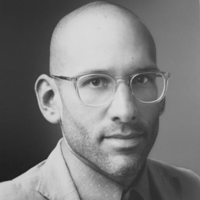Just by chance, the new revelation came at the beginning of Davos, the shorthand for the World Economic Forum’s annual conference in Switzerland. Davos is famous for how it concentrates the globe’s private jets, which disgorge elites to listen to panels and hobnob. Davos is one of a bunch of institutions that serve to weave the wealthy together.
Soaring global inequality means that the power of the ultra rich is growing. While these calculations are complicated, the different stats all tell a story of the same shape. Globally, the 500 richest people added more than a $1.2 trillion dollars to their wealth just last year. Domestically, the 400 richest Americans have as much wealth as the bottom 150 million people. It’s not that even the top 1 percent of Americans that has been making a killing since the Great Recession. No, it’s really the top 0.01 percent or even tinier percentages. At these levels, we’re not talking about some huge group of rich people—the so-called upper middle class—but a tiny, knowable universe of some thousands of people. The fortunes are huge, but the networks are not.
As a result, the ultra wealthy have detached from the rest of the planet. Their lives are not the lives of 99.999 percent of us. The flipside of their estrangement from nearly all of humanity is that they are connected to each other just as the royals of Europe were (and are), but through completely different means.
Their money ends up entangling seemingly disparate realms of human life. For example, when Jamal Kashoggi was murdered, reportedly on the order of Mohammad bin Salman, it touched off some panic in Silicon Valley. (MbS, as he is known, has taken “full responsibility” but denied giving the order). Saudi capital had been flowing freely through Masayoshi Son’s unprecedentedly large SoftBank Vision Fund, and into technology companies like Uber that were trying to create defensible businesses through money-losing growth. What would happen to that funding? When a small number of people control so much wealth, their decisions can affect the lives of millions, even billions of people.
Billionaires are still humans on Earth, of course. Jeff Bezos has been working out, but he is not Batman with his own secret technologies. He uses WhatsApp like 1.5 billion others. In this way, perhaps the new elites are as relatable online—tweeting dumb things, sexting—as they are inconceivably wealthy and powerful offline. You and I could chat on WhatsApp, but we would not have a cyberattack team able to craft us a virus for hacking each other’s phones, nor would our beef contribute to the collapse of certain Silicon Valley business models.
Messaging apps may work the same for everyone, but money works differently. The median American family’s net worth is around $100,000. Bezos’s net worth is around $115 billion. So, one Bezos worth of money is what 1.15 million families have. Plus, his money has different features. A normal person has money tied up in a home, usually, and some retirement accounts, stuff that’s relatively illiquid. A Bezos can send money winging around the globe because he or she has substantial cash and stock that can be sold whenever.
It’s nice to think of the economy as a place where small businesses can flourish. But it takes a lot of tamales or plumbing services or Uber rides or freelance articles to make even $100,000. While it’s strangely familiar, almost comforting, to think of Jeff Bezos’s fingers tapping at glass, selecting the right gif to send to the crown prince, the lesson is not that the super rich use apps just like us. It’s that they are so different and so deeply connected.
We want to hear what you think about this article. Submit a letter to the editor or write to letters@theatlantic.com.
Source link
 Black America Breaking News for the African American Community
Black America Breaking News for the African American Community
